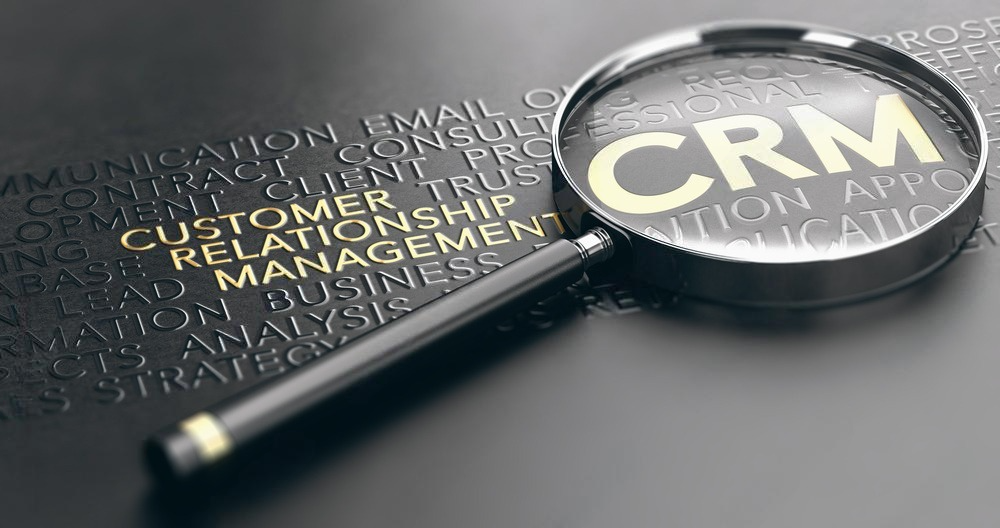Businesses of various sizes depend on Customer Relationship Management (CRM) software to optimize processes, cultivate customer relationships, and boost sales. Keap (previously Infusionsoft) is a widely used CRM platform that doesn’t suit everyone. Many organizations are looking into keap alternatives to better their unique requirements, whether related to cost, features, or scalability.
This article will explore the top keap alternatives, evaluating their features, benefits, and ideal application scenarios. By the end, you’ll gain insights into the CRM options that may best align with your business needs.
What is Keap?
Keap is a CRM and marketing automation solution for small and medium-sized businesses. It integrates vital tools for managing customer interactions, automating workflows, dispatching marketing emails, and monitoring sales activities.
Keap is recognized for its comprehensive suite, which includes:
– Email marketing functionalities
– Sales automation and pipeline oversight
– Scheduling tools for appointments
– CRM features for managing contacts and leads
While these tools can be advantageous for many, some users find Keap complicated or overly costly, particularly those with simpler requirements or limited budgets. This makes it vital to consider the top keap alternatives.
Why Explore Keap Alternatives?
Selecting an appropriate CRM is essential for streamlining operations. While Keap has an impressive array of features, it might not address the specific needs of every business. Here are key reasons you might seek alternatives:
- Cost: Keap can be pricey, especially for startups and small firms. Its plans start at $149/month, which may exceed some budgets.
- Complexity: For those seeking a straightforward CRM, Keap’s extensive features can feel daunting and may involve a steep learning curve.
- Limited Scalability: As organizations expand, they might require more sophisticated tools, customization options, or integration capabilities than what Keap offers.
- Unique Features: Companies with special needs—such as advanced marketing automation, in-depth analytics, or connections with specific third-party tools—may find Keap insufficient.
Essential Features to Consider in a CRM
When reviewing alternatives to Keap, prioritize the features most critical to your business. Here are vital capabilities to consider:
CRM Functionality
A CRM’s core purpose is managing customer relationships. Ensure the platform you select provides strong contact management, lead tracking, and segmentation features. It should be user-friendly and offer insights into your sales pipeline to help you effectively follow leads and secure deals.
Marketing Automation
One of Keap’s standout offerings is its marketing automation tools. When looking for alternatives, seek a system with robust automation features, such as automated email workflows, behavioural triggers, and support for multi-channel marketing.
Email Marketing
A good CRM should include email marketing capabilities, featuring options for templates, personalization, and analytics to monitor open rates, clicks, and conversions. Advanced email tools can bolster your campaign efficiency and save time.
Sales Pipeline Management
CRM solutions should facilitate effective sales pipeline management. Look for features that enable configurable sales stages, deal oversight, and sales forecasting. This helps clarify where leads stand in the sales process and identifies any bottlenecks.
Integrations
A CRM must integrate with the tools you already use, such as email marketing platforms, e-commerce services, and accounting software. Consider options that offer third-party integrations or open APIs, ensuring easy connectivity with your current tech ecosystem.
Top Alternatives to Keap
Here’s an in-depth look at some of the finest alternatives to Keap that deliver competitive CRM and marketing automation functionalities:
HubSpot CRM
HubSpot is a popular CRM known for its free and paid versions. The free plan is robust, featuring tools for contact management, email tracking, and sales management. Paid plans offer enhanced marketing automation and sales features, making them ideal for growing businesses.
- Pros: User-friendly interface, free features, strong marketing automation, and solid reporting tools.
- Cons: Higher-tier pricing can be costly.
Go Deeper: The Most Effective Marketing for Small Business: Proven Strategies to Drive Growth
ActiveCampaign
ActiveCampaign shines in customer experience automation. With advanced marketing automation, it’s perfect for businesses focused on personalized customer engagement. It combines CRM functionalities with email marketing and allows for detailed segmentation and behaviour-based automation.
- Pros: Advanced automation, extensive segmentation, and a comprehensive email marketing suite.
- Cons: It may overwhelm users needing basic CRM features.

Zoho CRM
Zoho CRM is an adaptable and cost-effective option that includes a variety of CRM tools along with robust marketing automation capabilities. It’s particularly suitable for small and medium-sized businesses seeking a customizable solution that grows alongside them. Strong integration options with other Zoho products and third-party applications enhance its versatility.
- Pros: Affordable, customizable, and scalable with AI-driven predictions.
- Cons: The interface might appear cluttered.
Pipedrive
Pipedrive is a sales-focused CRM created to aid teams in managing deals through a visually appealing pipeline interface. Its straightforward usability and automation features cater to businesses prioritizing sales. However, its marketing automation functionalities are limited compared to others.
- Pros: Sales-oriented, easy to navigate, and strong visual pipeline management.
- Cons: Lacks comprehensive marketing automation options.
Salesforce Marketing Cloud
As a key player in the CRM market, Salesforce Marketing Cloud delivers powerful CRM tools, marketing automation, and advanced analytics for companies of various sizes. Best suited for larger organizations with intricate needs, it offers customizable workflows and extensive integration with numerous third-party applications.
- Pros: Highly customizable, advanced marketing features, and superior analytics.
- Cons: Expensive and potentially challenging for smaller businesses to implement.
Ontraport
Ontraport provides a comprehensive CRM and marketing automation solution focusing on customer lifecycle management. It includes tools for email marketing, SMS campaigns, landing pages, and sales pipeline handling. It’s particularly effective for businesses wanting to manage intricate customer journeys without difficulty.
- Pros: Excellent lifecycle management, powerful marketing automation, and all-in-one applicability.
- Cons: Can be costly for smaller enterprises.
Constant Contact
Best known for its email marketing services, Constant Contact has branched into the CRM market. Although it doesn’t offer as many features as Keap, it presents a straightforward, budget-friendly option for businesses requiring basic CRM and marketing tools without advanced complexities.
- Pros: User-friendly, affordable, and well-suited to small businesses.
- Cons: Limited CRM and automation feature depth.
Freshsales
Freshsales, part of the Freshworks suite, delivers an AI-enhanced CRM solution centred on lead management and sales automation. It’s ideal for small to medium-sized businesses aiming to improve sales processes and conversions through smart automation features.
- Pros: AI-driven lead scoring, user-friendly interface, and strong sales capabilities.
- Cons: Less comprehensive marketing automation compared to other options available.
Agile CRM
Agile CRM is another budget-friendly all-in-one CRM solution that features email marketing, sales tracking, and social media integration, making it an excellent choice for small businesses. It stands out for its competitive pricing on marketing automation features.
- Pros: Cost-effective, comprehensive features, and solid marketing automation.
- Cons: May not suit larger organizations or complex processes.
ClickUp
Mainly a project management tool, ClickUp includes strong CRM capabilities for managing leads and customer relationships. Its customizable interface allows businesses to tailor workflows to their unique sales processes, making it appealing for teams that seek adaptability.
- Pros: Highly customizable, merges project management with CRM capabilities.
- Cons: Not a dedicated CRM, so it may lack some specific features compared to others.
Comparison Table of Keap Alternatives
| Feature | Keap | HubSpot | ActiveCampaign | Zoho CRM | Pipedrive | Salesforce | Ontraport |
|---|---|---|---|---|---|---|---|
| CRM Capabilities | Yes | Yes | Yes | Yes | Yes | Yes | Yes |
| Marketing Automation | Yes | Yes | Yes | Limited | No | Yes | Yes |
| Email Marketing | Yes | Yes | Yes | Yes | No | Yes | Yes |
| Sales Pipeline Management | Yes | Yes | Yes | Yes | Yes | Yes | Yes |
| Ease of Use | Moderate | Easy | Moderate | Moderate | Easy | Complex | Moderate |
| Integrations | Limited | Extensive | Extensive | Extensive | Moderate | Extensive | Limited |
Conclusion: Selecting the Right Keap Alternative
When on the lookout for Keap alternatives, the focus should be on assessing the features that support your business objectives. Each CRM solution possesses unique advantages, making some more appropriate for varying business models or development phases. HubSpot’s free plan stands out for startups, while Salesforce serves larger enterprises with intricate workflows.
In the end, the perfect CRM hinges on your budget, specific requirements, and integration with current software. Take the time to investigate these Keap alternatives, and you’ll discover a fitting solution that will help your business

